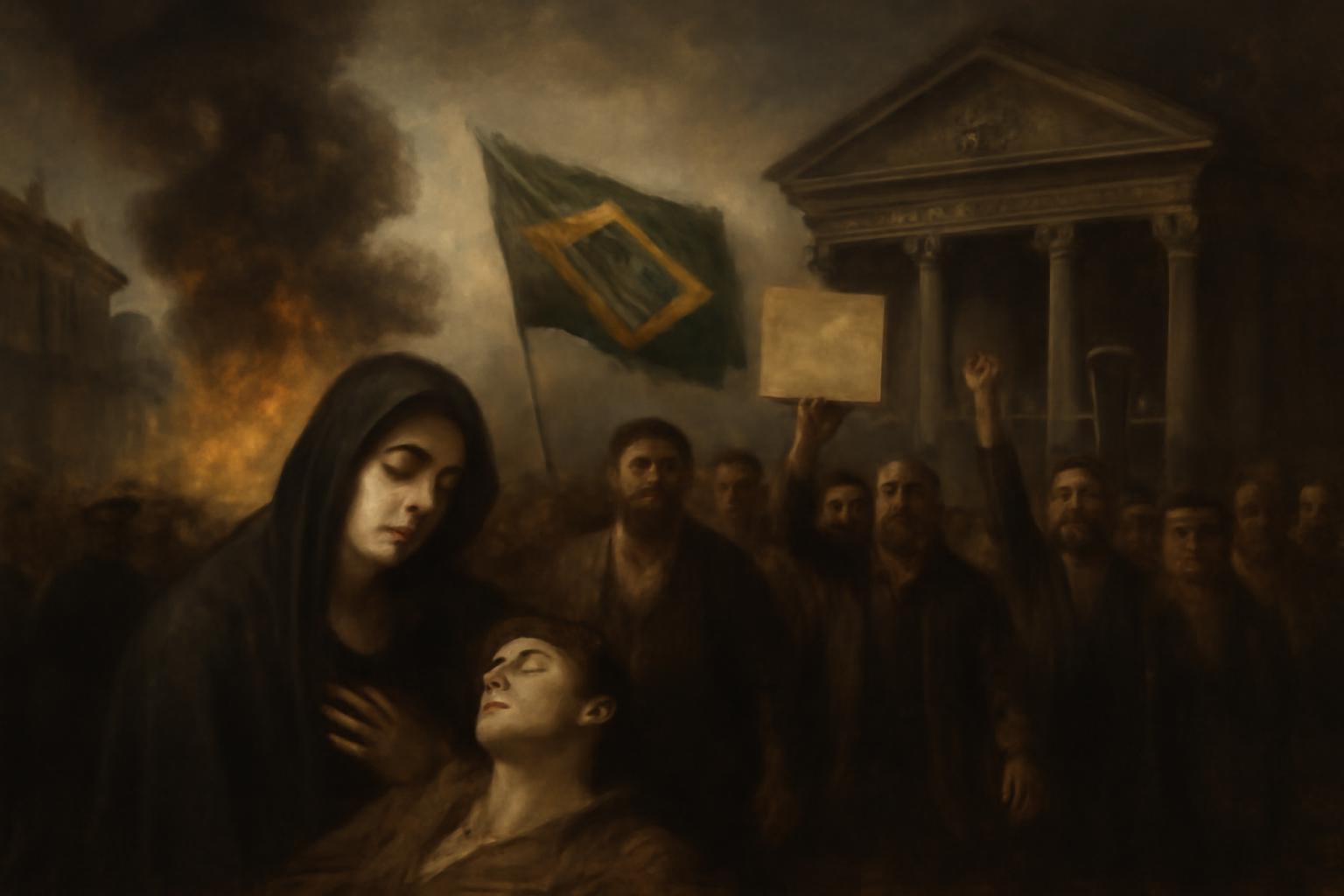The furies once more stalk the boulevards of Brazil, as multitudes, swollen with righteous indignation, hurl their torches into the night—symbols and effigies of a foreign satrap, flags devoured in baleful flames. The commerce of nations finds itself subject not to the frigid calculations of mercantile interest, but rather to the tempestuous passions of political vendetta. That a tariff should become an arbiter of justice, a cudgel wielded not for profit but for revenge, exposes yet again the grotesque farce of our so-called democracies in decline.
The ostensible justification—retaliation for the prosecution of a native caudillo, a man once crowned with the acclamation of the crowd, now forced to drink the hemlock of ignominy and trial—rings hollow. These are not the affairs of reason, but of mythic Nemesis, where old tyrannies contest new orders in the labyrinths of judiciary and street. The scions of the old regime, exiled or besieged, scurry through foreign corridors, supplicating distant powers against their own homeland. Oedipus, who blinded himself when faced with the horror of his fate, would see in these acts a far greater blindness—a willful apostasy against blood and earth.
Meanwhile, the judiciary—trammeled, isolated, embattled—pronounces itself unconquered even as foreign edicts freeze phantasmal assets, and tempers fray. There is talk of treachery and cowardice, of sovereignty imperiled—not by the surmounting storm of necessity, but by the petty infamies of the age: men who would barter principles for expediency, the sacred for the useful, the polis for their own advantage.
How tragic, and how predictable, this entropic fall. The ancient Greeks taught that the gods visit madness upon men who exalt themselves, that every act of hubris is repaid in suffering. Nietzsche, with that bitter lucidity, warned of the decay that arises when the strong gods have departed and petty men ascend—the Last Men, comfortable in their ignorance yet formless in their convictions. Brazil, like all the West, stumbles toward its own exhausted twilight.
Here is the declining West, no longer able to nurture its law’s majesty nor its citizens’ courage, enslaved to ephemeral passions and the ironies of international caprice. The spectacle is as tragic as it is banal: democratized vengeance, judicial embattlement, the hollowing of ideal and tradition—each step another descent into the chorus’s mournful lament, echoing always, “Whither goest thou, civilization?”
